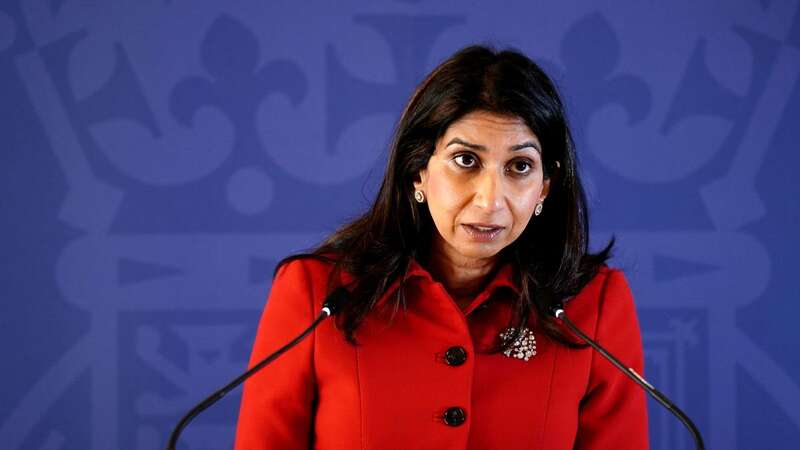
A watchdog boss has asked Suella Braverman how she'd feel about a relative having vital medicine taken off them after finding this is happening to asylum seekers.
The Home Office is accused of putting the lives of people with serious medical conditions at risk by confiscating medicines at short-term holding centres. This could "lead to a medical emergency and potentially endanger the lives of detained people", with an epileptic man who had drugs that prevent seizures taken from him.
In another instance a man with an artificial heart valve had his NHS-prescribed daily medication to prevent blood clotting taken off him. As the hours passed he became "increasingly worried" during his detention at Sheffield Vulcan House, a new report says.
In the end staff broke their rules to give him the required dose, but only after being told there was a two hour wait for NHS 111 support. The Home Secretary has been urged to urgently review the policy.
Dominic Byrne, who chairs the North East Midlands, Yorkshire & Humberside Independent Monitoring Board (IRB), which carried out the review, said: “We invite the Home Secretary and all the people reading this report to consider how they would feel if their mother, father, son or daughter had a health condition, was placed in detention and then was deprived of medicine that was necessary to maintain their health and, possibly, safeguard their life.
 Hospitals run out of oxygen and mortuaries full amid NHS chaos
Hospitals run out of oxygen and mortuaries full amid NHS chaos
“We have previously raised concerns, including a letter to the Minister from the IMB National Chair, about this matter. The current rules place staff at these facilities in a very difficult position. If they apply the rules, they can end up with a medical emergency on their hands."
Mr Byrne said that staff who allow detainees to take a dose of their medicines are in breach of the rules, and called on Ms Braverman to "reconsider policy around the confiscation of prescribed medication".
The report also said that people are asked sensitive questions, such as whether they've experienced sexual abuse in open spaces where interviews can be overheard. And it warned that the format of interviews may not help identify issues such as post-traumatic stress disorder, victims of modern slavery, or other forms of exploitation.
But Mr Byrne said staff in the nine facilities monitored by the watchdog do treat the safety, welfare and dignity of those detained as "matters of priority".
A Home Office spokesperson said: “We thank the Independent Monitoring Board for this report which acknowledges the safety, welfare and dignity of detained individuals are a clear priority.
“We take the welfare of people in our care extremely seriously and we continue to improve our short-term holding facilities.”
* Follow Mirror Politics on Snapchat, Tiktok, Twitter and Facebook.
Read more similar news:
Comments:
comments powered by Disqus
































